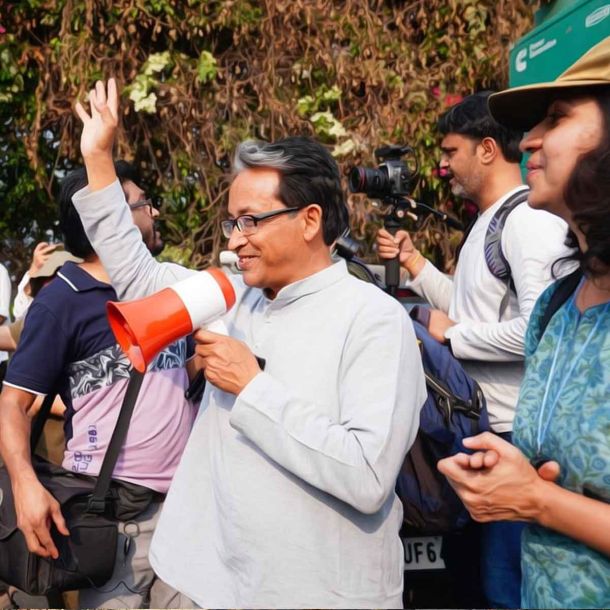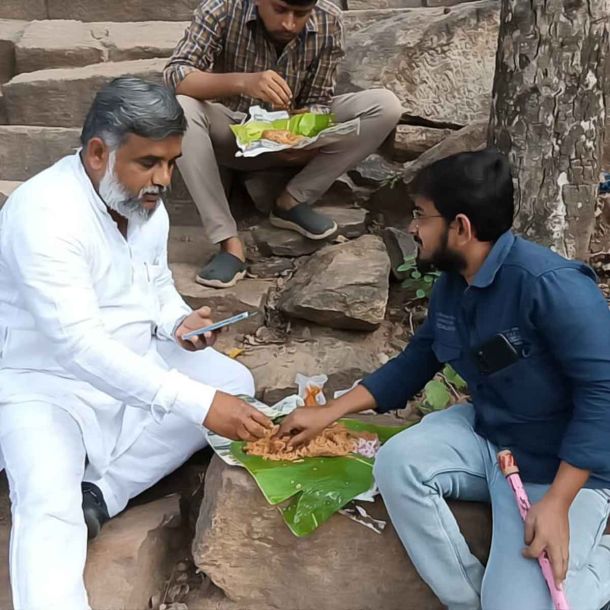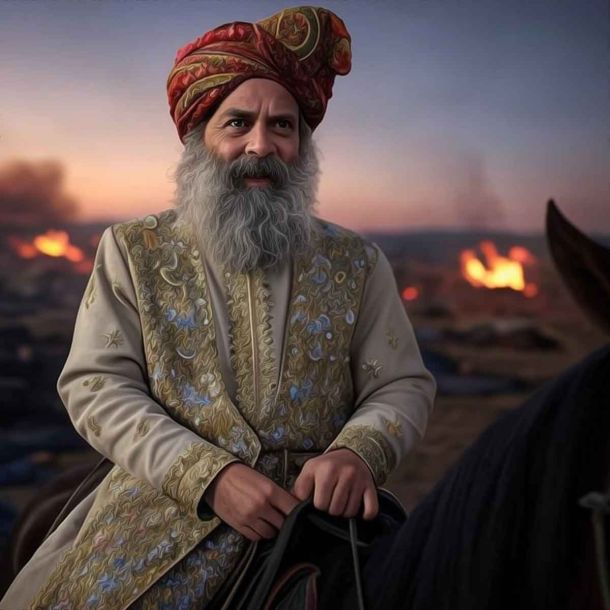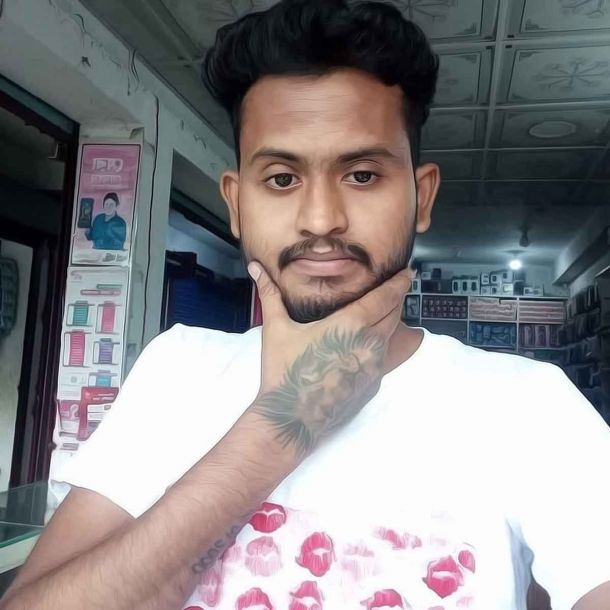MORE COVERAGE
Twitter Coverage
Satyaagrah
Written on
Satyaagrah
Written on
Satyaagrah
Written on
Satyaagrah
Written on
Satyaagrah
Written on
JOIN SATYAAGRAH SOCIAL MEDIA
"कुल या अय्युहल काफिरून": A ‘jhad-fook’ Maulana Mushtaq Ali and his three sons Akram, Junaid, and Faizan threatened, raped Hindu woman and daughter in Prayagraj, and forcibly convert their family to Islam; sons arrested and Maulana is already deceased
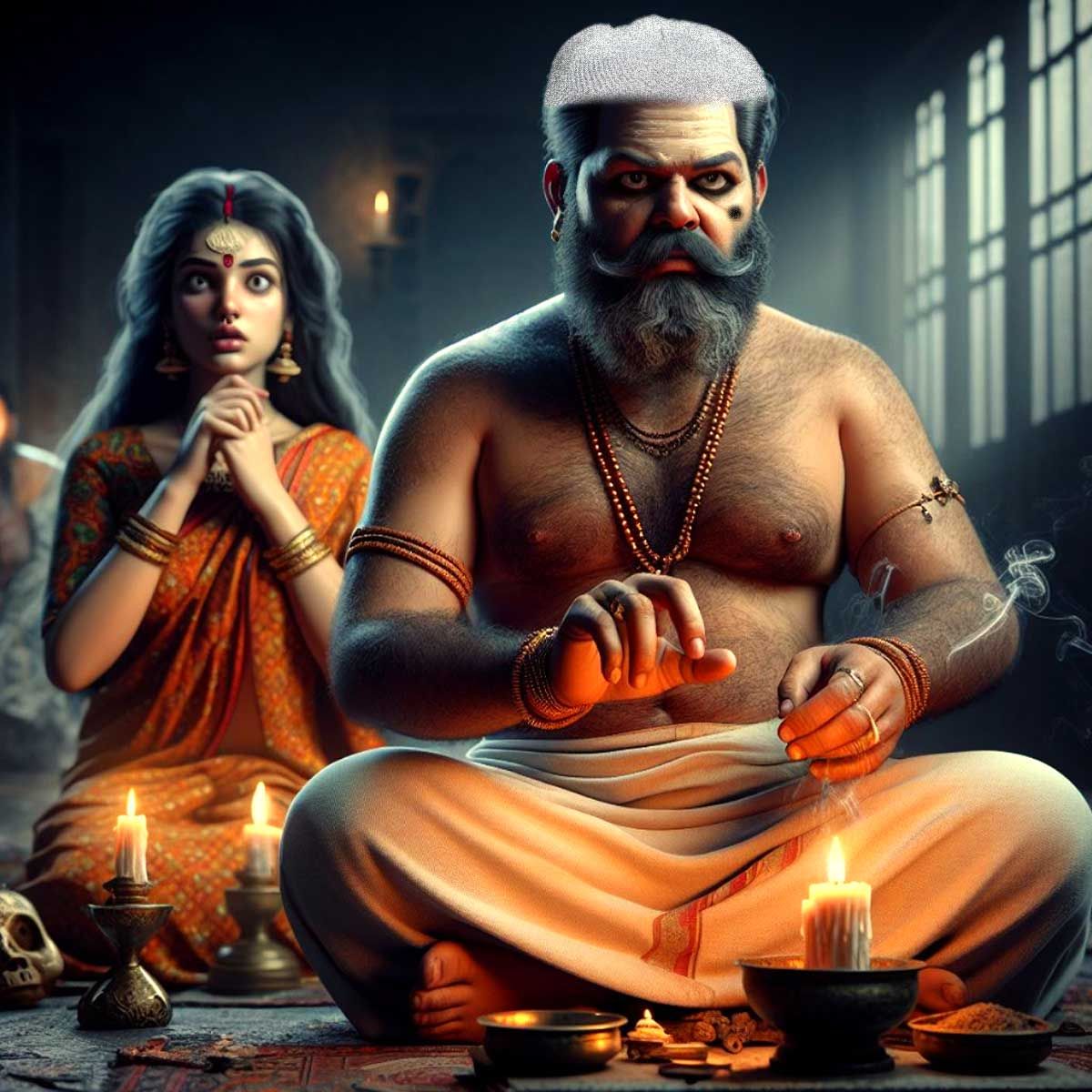
In the heart of Prayagraj, a distressing incident has brought to light the coercion faced by a Hindu family, spanning two generations, compelling them to abandon their faith and embrace Islam. The late Maulana Mushtaq Ali and his sons, Akram, Junaid, and Faizan, are at the center of a case that reveals the dark underbelly of religious manipulation.
|
This harrowing tale encompasses a series of tragic events, starting with the family's loss of their minor daughter. It is a tale of unimaginable distress, as the family found themselves entangled in illicit 'jhad-phook' practices, a term unfamiliar to many but carrying grave consequences for those ensnared by it.
The family's ordeal took a horrifying turn with allegations of sexual assault, further intensifying the gravity of their plight. The coercion tactics employed by the late Maulana Mushtaq Ali not only shattered their sense of security but also infringed upon their fundamental rights.
In connection with this distressing case, the authorities have taken action by arresting three brothers—Akram, Junaid, and Faizan. However, the glaring omission of holding their deceased father accountable has raised questions about the depth of the investigation.
This incident shines a spotlight on the broader issue of religious coercion and the vulnerabilities faced by minority communities. The need for a thorough investigation and justice for the affected family is paramount, urging society to reflect on the values of tolerance and respect for diverse beliefs. The tale of the late Maulana Mushtaq Ali and his sons serves as a stark reminder of the importance of safeguarding individual freedoms and protecting the rights of all citizens, regardless of their religious affiliations.
The case surrounding the late Maulana Mushtaq Ali and his sons has taken a legal turn, with a comprehensive investigation underway. Although Mushtaq Ali has already passed away, the pursuit of justice continues as a case has been registered at the Colonelganj police station in Prayagraj.
|
The charges against the late cleric and his three sons—Akram, Junaid, and Faizan, along with two other individuals—are formidable. The legal framework addressing their alleged crimes encompasses sections of the Indian Penal Code (IPC) and the Uttar Pradesh Prevention of Illegal Religious Conversion Act 2021.
The charges include:
1. Riots and Causing Hurt (Sections 147 and 323 IPC): The family's ordeal involved not only religious coercion but also instances of rioting and causing physical harm. These charges underline the violent nature of the events that unfolded.
2. Intentional Insult and Criminal Intimidation (Sections 504 and 506 IPC): Allegations of intentional insult and criminal intimidation further compound the gravity of the accusations. These sections aim to address acts that not only physically harm but also emotionally distress the victims.
3. Wrongful Confinement (Section 342 IPC): The victims were subjected to wrongful confinement, a charge that reflects the deprivation of their liberty and the violation of their basic rights.
4. Sexual Harassment (Section 354(A) IPC): The case includes charges of sexual harassment, revealing a deeply distressing aspect of the family's ordeal that adds another layer of severity to the accusations.
5. Violation of the Uttar Pradesh Prevention of Illegal Religious Conversion Act 2021 (Sections 3 and 5(A)): The legal pursuit also involves charges under the Uttar Pradesh Prevention of Illegal Religious Conversion Act 2021, emphasizing the alleged forced religious conversion that the family endured.
The victim at the center of this distressing case, Sangeeta Gupta, has courageously come forward to share the painful narrative of her family's entanglement with Maulana Mushtaq Ali. Sangeeta reveals that her father, the late Baccha Gupta, fell prey to the persuasive tactics of Mushtaq Ali, leading to a series of life-altering events.
|
Years ago, Baccha Gupta, the owner of a sweet shop, encountered Maulana Mushtaq Ali, who craftily enticed him into religious conversion under the pretext of enhancing his business. Mushtaq, presenting himself as a well-wisher, convinced Baccha that frequenting the mosque and offering chadar (a traditional cloth) could bring prosperity to his enterprise. Baccha, seeking improvement in his business, succumbed to Mushtaq's influence.
In a distressing turn of events, Baccha began visiting the Mazar (a shrine), as per Mushtaq's instructions. Within a few months, he found himself manipulated into abandoning his Hindu faith and embracing Islam. Mushtaq not only exploited Baccha's vulnerability but also instructed the family to cease worshipping Hindu deities, replacing it with the offering of chadar at the Mazar.
This account unveils the insidious methods employed by Maulana Mushtaq Ali, preying on individuals' aspirations and economic vulnerabilities to coerce them into religious conversion.
The distressing saga of Sangeeta Gupta's family takes a sinister turn as Maulana Mushtaq Ali, having successfully coerced religious conversion, delves further into controlling their lives. Following the conversion, Mushtaq demanded an unsettling act from the Gupta family—he instructed them to construct a grave within their home.
This alarming directive went beyond the boundaries of religious conversion, revealing a disturbing exercise of control. Mushtaq warned that failure to comply with this demand would result in dire consequences—the entire family facing demise through his claimed miraculous 'jhad-fook' powers. This ominous threat not only added psychological pressure but also showcased Mushtaq's manipulative tactics to instill fear and ensure compliance.
Moreover, Mushtaq extended his influence directly into Sangeeta's residence, where she lived with her husband and in-laws. The intrusion into the family home highlighted the extent of Mushtaq's control, as he maintained a watchful eye on Sangeeta's daughters. This invasion of personal space not only deepened the family's vulnerability but also showcased the audacity with which Mushtaq wielded his influence.
 |
In the aftermath of her father's demise, Sangeeta Gupta's heart-wrenching story takes a darker turn as Maulana Mushtaq Ali continues to terrorize her, inflicting further pain on the already grieving family. Mushtaq's malevolent actions compelled both Sangeeta and her daughter to visit the Mazar situated in the Chhota Baghada area of the town.
At the Mazar, instead of finding solace or spirituality, Mushtaq brutally raped Sangeeta's minor daughter by locking her in a room. This disturbing act not only violated the sanctity of the sacred space but also plunged the innocent minor into a traumatic experience that defies comprehension.
When the minor bravely disclosed the distressing incident to her mother, Sangeeta, a confrontation with Mushtaq ensued. However, any hope for justice or remorse was crushed as Sangeeta was met with threats of severe consequences. Mushtaq, weaving a web of fear, claimed to possess supernatural abilities akin to those he alleged caused harm to Sangeeta's father through his supposed magical powers.
The relentless psychological and physical torment orchestrated by Mushtaq took a devastating toll on the health of the minor daughter. Her fragile well-being deteriorated over time, culminating in her tragic demise on December 28, 2018. The profound tragedy of losing a loved one was compounded by the malicious actions of Mushtaq, underlining the urgency of addressing and preventing such exploitative behaviors in our society. As the legal proceedings unfold, Sangeeta's courageous testimony serves as a powerful reminder of the need to protect vulnerable individuals from manipulation and cruelty.
Haunted by the profound loss of her daughter, Sangeeta Gupta found herself ensnared in a never-ending nightmare as she succumbed to the fear instilled by Maulana Mushtaq Ali. Following the loss, Sangeeta, fearing Mushtaq's purported magical powers, reluctantly complied with every demand he made. This included relinquishing money, jewelry, and any items requested for the Mazar—a painful surrender driven by dread and intimidation.
The torment persisted even after Mushtaq's passing on October 23, 2023. On that very day, his sons—Akram, Junaid, and Faizan—visited Sangeeta's house, claiming that Mushtaq had instructed them, before his death, to bring her to the mausoleum at any cost. The continuation of threats and intimidation propelled Sangeeta into a state of ongoing fear, forcing her to reluctantly comply.
On October 24, 2023, Sangeeta found herself once again at the Mazar, succumbing to the coercive tactics employed by Mushtaq's sons. What awaited her there was not solace but a continuation of her nightmare—she endured both verbal, physical abuse and sexual assualt. The manipulation and exploitation that Sangeeta faced not only highlight the enduring impact of fear but also underscore the urgent need for society to protect individuals from coercive and abusive tactics, especially when rooted in religious or spiritual contexts.
In a formal complaint that lays bare the extent of the torment she endured, Sangeeta Gupta bravely disclosed the appalling acts perpetrated by Akram and his brothers. According to her account, they subjected her to dehumanizing and degrading rituals, compelling her to spit on the floor and ingest it—a grotesque form of psychological and physical abuse.
The torment did not stop there. Sangeeta revealed that she was confined in a room where Akram and his brothers subjected her to inappropriate touching at private parts and made offensive remarks, further violating her dignity and humanity. The distressing revelation paints a stark picture of the sadistic and malicious behavior inflicted upon her.
Adding another layer to the horrors she faced, Sangeeta disclosed that the accused demanded she bring her elder daughter to the Mazar, perpetuating the cycle of coercion and manipulation. What makes her case even more alarming is her assertion that she is not the sole victim of these heinous acts. Sangeeta emphasized that numerous other women suffered similar torture and assault at the hands of the accused and their family.
Disturbingly, the accused and their family are accused of coercing these women into converting to Islam, highlighting the insidious nature of their actions. Sangeeta's brave testimony reveals a pattern of abuse and manipulation that extends beyond her personal ordeal, underscoring the urgent need for society to address and prevent such predatory behavior.
 |
In a desperate plea for justice, Sangeeta Gupta shared her heartbreaking ordeal, revealing not only the horrific acts inflicted upon her but also the uphill battle she faced in seeking help. She asserted, "With all these claims I approached both Colonelganj and Annie Basent police stations but to no avail and no one filed an FIR against the perpetrators." This poignant statement underscores the initial reluctance or inefficiency in addressing the grave nature of the crimes she endured.
Sangeeta took a crucial step in her pursuit of justice by submitting a formal complaint on November 11. In this complaint, she detailed the heinous acts committed against her and numerous other women. However, it wasn't until December 5 that the authorities finally acknowledged the gravity of her claims and lodged an FIR (First Information Report). The delay in filing the FIR raises questions about the responsiveness of the police in addressing such serious offenses.
The FIR, now officially registered, outlines the charges against the accused. According to the FIR, the perpetrators have been booked under various sections of the Indian Penal Code, including 147 (rioting), 323 (causing hurt), 504 (intentional insult), 342 (wrongful confinement), 354 (A) (sexual harassment) and provisions of the Uttar Pradesh Prohibition of Unlawful conversion of Act.
In addition to these, the FIR mentions provisions of the Uttar Pradesh Prohibition of Unlawful Conversion Act, reflecting the alleged coercion and forced religious conversions that Sangeeta and other victims endured.
The legal proceedings surrounding Sangeeta Gupta's case faced a significant hurdle as it was revealed, "A case was not registered against Mushtaq as he had died, police said." This statement underscores the limitation of pursuing legal action against the deceased accused, Mushtaq. Despite his alleged involvement in the crimes, the law poses challenges when the accused has passed away.
In a crucial development, the Organiser contacted the station-house officer, Colonelganj, Govind Yadav, on December 6. According to him, the police had taken decisive action by arresting the three named accused mentioned in the FIR on December 5. This turnaround in action suggests a shift in the responsiveness of the authorities after Sangeeta's struggle for justice.
Officer Govind Yadav confirmed that an FIR was registered at the Colonelganj police station on December 5. This FIR was based on the formal complaint lodged by Sangeeta against the three brothers—Akram, Junaid, and Faizan—for their alleged involvement in forcibly converting her and her daughter. The inclusion of charges related to forced religious conversion amplifies the gravity of the accusations and marks a significant step forward in addressing the crimes committed against Sangeeta and others.
As the legal proceedings continue, the arrests of the accused offer a glimmer of hope for justice in Sangeeta's case. The persistence of Sangeeta and the subsequent actions by the police underscore the importance of a robust legal system that responds swiftly to cases of coercion, assault, and forced religious conversion. This development is a testament to the power of individuals seeking justice and the need for collective efforts to ensure a society that protects its most vulnerable members.
 Support Us
Support Us
Satyagraha was born from the heart of our land, with an undying aim to unveil the true essence of Bharat. It seeks to illuminate the hidden tales of our valiant freedom fighters and the rich chronicles that haven't yet sung their complete melody in the mainstream.
While platforms like NDTV and 'The Wire' effortlessly garner funds under the banner of safeguarding democracy, we at Satyagraha walk a different path. Our strength and resonance come from you. In this journey to weave a stronger Bharat, every little contribution amplifies our voice. Let's come together, contribute as you can, and champion the true spirit of our nation.
 |  |  |
| ICICI Bank of Satyaagrah | Razorpay Bank of Satyaagrah | PayPal Bank of Satyaagrah - For International Payments |
If all above doesn't work, then try the LINK below:
Please share the article on other platforms
DISCLAIMER: The author is solely responsible for the views expressed in this article. The author carries the responsibility for citing and/or licensing of images utilized within the text. The website also frequently uses non-commercial images for representational purposes only in line with the article. We are not responsible for the authenticity of such images. If some images have a copyright issue, we request the person/entity to contact us at satyaagrahindia@gmail.com and we will take the necessary actions to resolve the issue.
Related Articles
- 23 Jan to 29 Jan - 2022 - Hindus under attack: Bulletin roundup of persecution, discrimination, and hate crimes against Hindus
- Pakistani Media reporting abduction, forceful conversion as a consent marriage with the Muslim abductor in SIndh
- Ajmer 1992 rape case: Whole Bharat was shocked when influential caretaker family of sacred shrine Khwaja Chishti initiated forced sexual exploitation en masse by Farooq Chishti, a scandal that involved hundreds of girls raped and harassed daily
- Mohammedan Irfan Siddiqui, who was serving jail time for raping a Dalit woman on his release comes out and kills her brother Hiralal Gujrati: Hiralal’s wife told, “My husband was very scared. He wanted to leave Delhi"
- "बोल औरत, कबूल है?": In Ghaziabad, Maulvi Sarfaraz faces arrest under UP's Unlawful Conversion Law for forcing a Hindu woman to Islam, claiming to rid evil powers, sparking a major controversy on religious freedom and spiritual healing exploitation
- In yet another horrific incident of grooming jihad Mohammad Yasin, a supplier of ayurvedic medicine killed his second wife ‘Zara’ earlier a Hindu girl 'Shiva Vishwakarma': Left their three-year-old girl child outside the house
- In the interpretation of Islam, any pictorial representation of Prophet Muhammad is an anathema, something that is strictly prohibited and even regarded as ‘blasphemy’ and calls for beheading
- Tales of Fraud, funding, forced religious conversion and insulting Hindu gods and goddesses after brainwashing: How tribals were converted to Islam in Gujrat - “Aapka paigam London pahucha diya hai, achha kaam ho raha hai"
- While Hindus are at rest, one peaceful community is working overtime under the sentiments of Land Jihad to bring Indian Railways under Waqf Board
- Jihad stretching leg into schools: Bengaluru school student affirms teacher imposed class to pray to ‘better god’ Allah as punishment, the school says it was eye exercise
- Periyar EV Ramasamy and his relationship with Islam
- Maulana Qamar Gani Usmani detained by Gujarat ATS in murder case of a Hindu Youth Kishan Bharwad, had incited prime accused to kill Kishan for ‘blasphemy’
- Dewan Bahadur saheb was made to quit as a Speaker because he wasn't a Muslim: Tragedy of a Christian leader who backed Pakistan’s creation
- Devkinandan Thakur's statement is a slap in the face of the Islamist hoodlum from Hyderabad - “Many more Yogis and Modis standing in line…”
- Stone pelting from the rooftops on Hanuman Jayanti procession in Jahangirpuri, police vehicles torched, used firearms to attack police: Ambush on Hindu holy expedition continues in the country, one policeman shot























